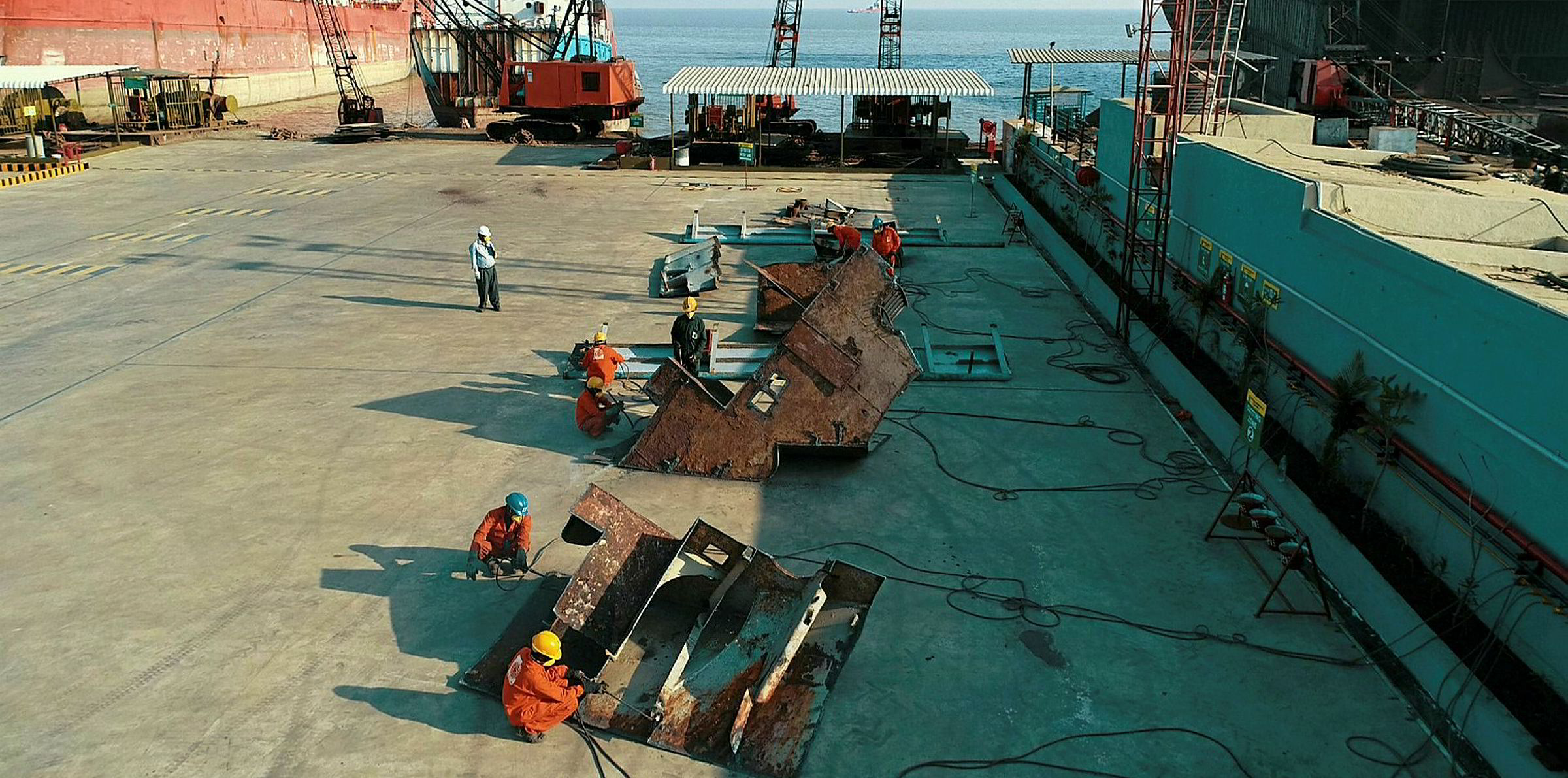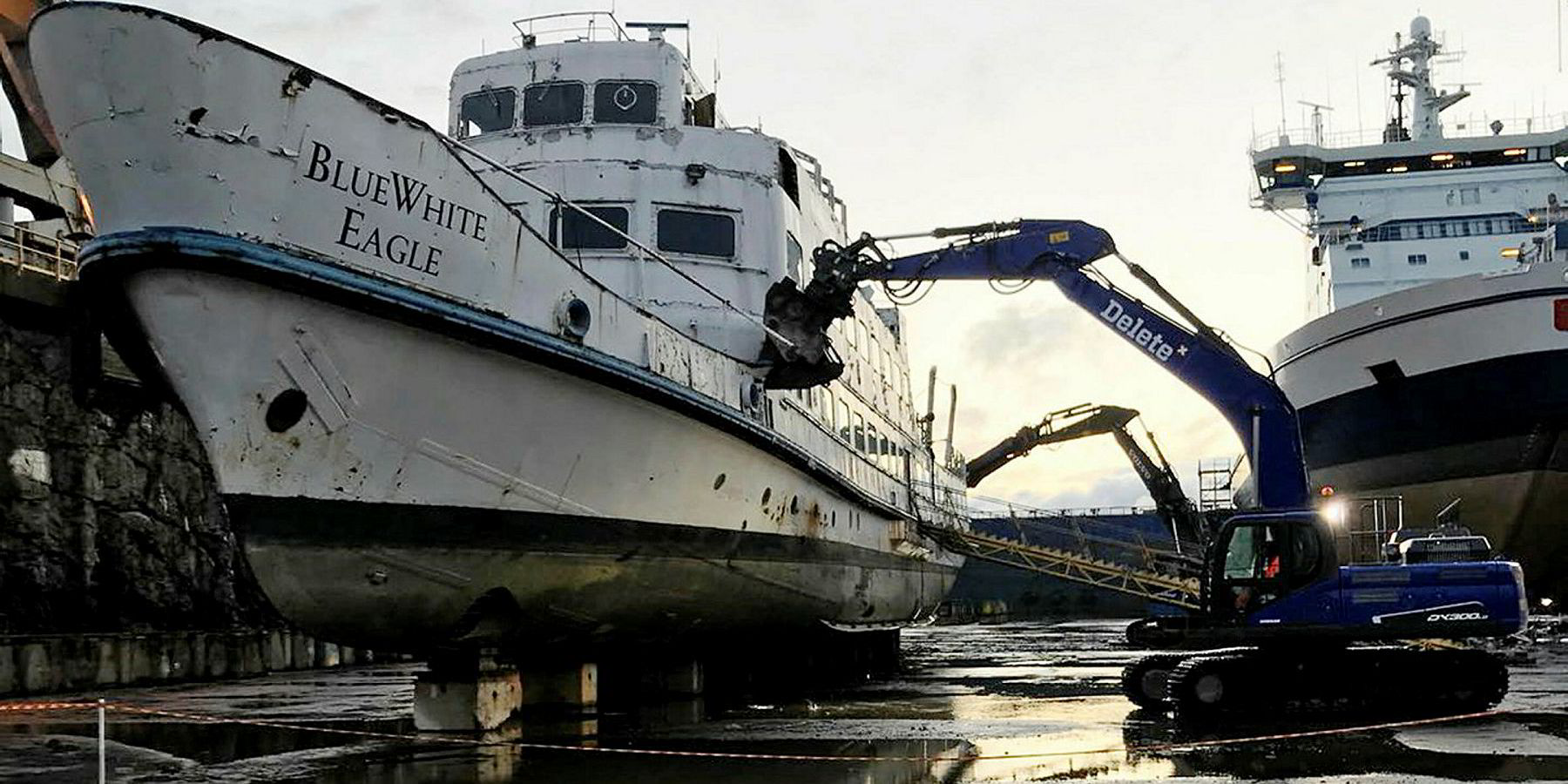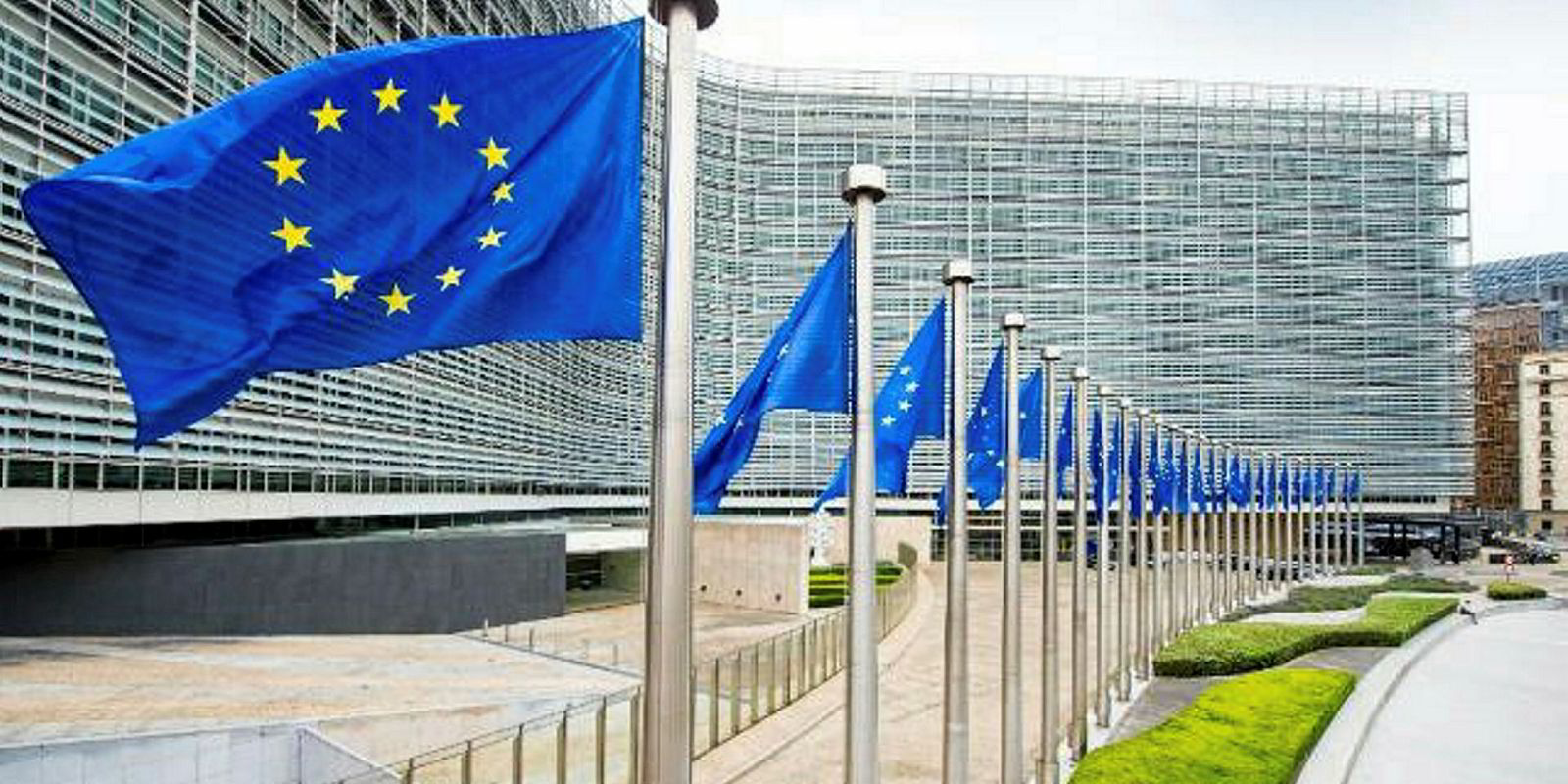Brussels' new ship demolition rules mean European Union-flagged vessels could face at least a 50% loss in residual values and have trouble finding yards to recycle them, one of the world’s largest cash buyers has warned.
When the regulations come into force at the end of this year, a number of approved shipbreaking facilities are expected to offer demolition rates much lower than market levels, according to Anil Sharma, founder and chief executive of GMS.
It is going to be “a totally different ball game”, Sharma told TradeWinds at his Dubai office.
Non-EU yards listed
There are 26 approved shipbreakers under the EU's Ship Recycling Regulation, with some non-EU yards added to the list last month. One US yard, two Turkish breakers and 23 European facilities are now included.
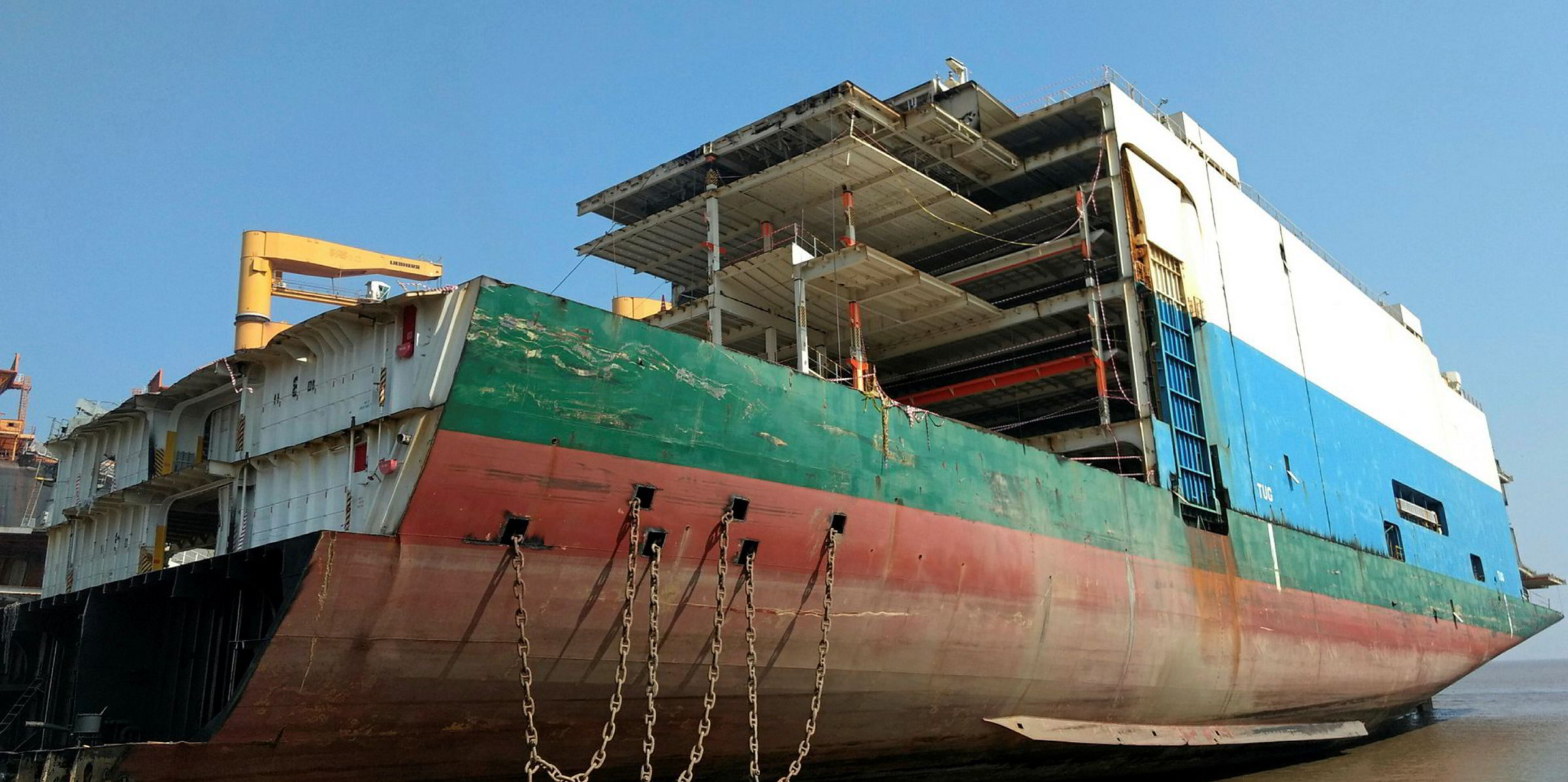
The regulation will prove costly for owners of EU-flagged ships, with Turkish yards — which are likely to be the most competitive — expected to offer only 50% of prevailing demolition rates, Sharma said.
“If you go outside of Turkey, it’s about 70% or 75% [off the prevailing rates],” he added.
Industry officials suggest that EU-approved shipbreakers will need to offer lower rates to recover the investment needed to meet Brussels’ environmental standards, and that some of them may even charge owners rather than pay them.
Variable lump sum
A ship’s residual value can be a useful cash lump sum to owners when vessels are sold for demolition, but it fluctuates with scrapping rates.
“If that gets 50% off, would that affect cash flows? Obviously,” Sharma said.
Another concern over the new European regulation, shared by Sharma and some shipping executives, is that the total shipbreaking capacity of the EU-approved yards might not be sufficient to meet demand.
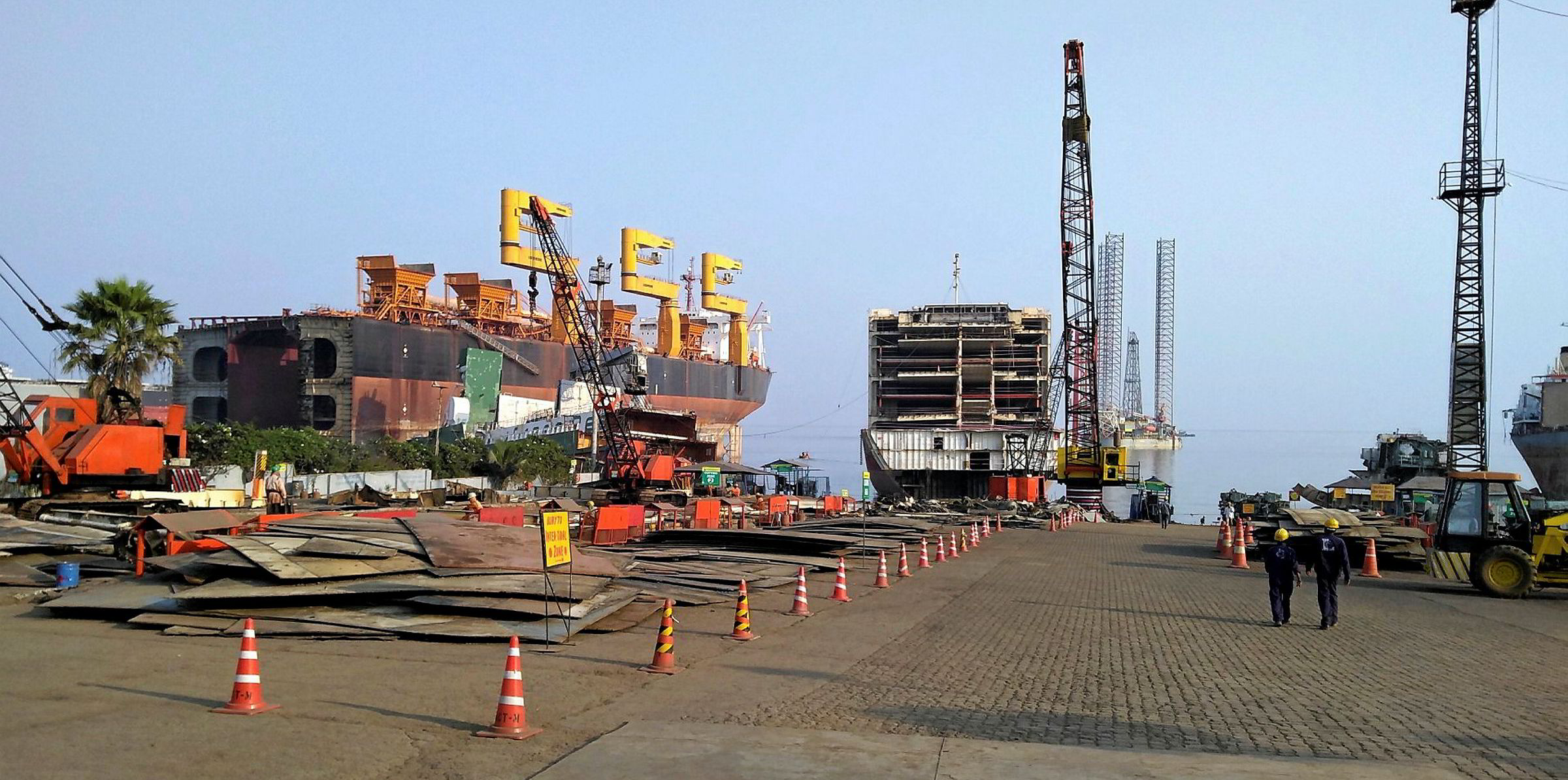
Environmental group NGO Shipbreaking Platform refutes such concerns.
Based on TradeWinds' calculations, yards on the list could recycle up to 884,600 ldt per year. But most of the capacity is not yet online or not tested.
Concerns over US yard
There have also been some doubts over whether International Shipbreaking — the only US yard on the list — can actually recycle EU-flagged ships, given that the US Toxic Substances Control Act restricts the import of hazardous substances found on vessels.
A bigger concern is the capacity. European and American yards cannot really effectively recycle the large vessels
Anil Sharma
“A bigger concern is the capacity,” Sharma said. “European and American yards cannot really effectively recycle the large vessels.”
In an extreme scenario, cash buyers such as GMS may need to find anchorages for the vessels they acquire from owners before sending them to scrap.
“We buy those assets, we park them somewhere … and we send them one at a time,” Sharma said. “I am joking, but it could be [that case].”
Eventually, the EU list may include some yards in the Indian subcontinent — where most of the world’s major shipbreakers are based — even though their beaching methods face criticism from some environmental groups.
China ban
China is out of the picture, as Beijing will ban imports of scrap vessels from the end of 2018.
“All the yards [in the subcontinent] that meet the Hong Kong Convention will apply to the EU,” Sharma said.
The IMO's Hong Kong Convention for the Safe and Environmentally Sound Recycling of Ships, unlike the European rules, does not regulate for the downstream disposal of waste.
For now, 11 Indian yards have applied to be on the EU list. Two applications are at an advanced stage, according to Sharma, which TradeWinds has reported as Shree Ram Vessel Scrap and Priya Blue Industries.
'Circumventing'
The EU’s existing Waste Shipment Regulation requires all EU-flagged vessels and non-EU-flagged ships whose last ports of call are in Europe to be recycled within OECD countries. European owners often meet this rule by selling the ships to cash buyers, who reflag the ships.
However, after a Dutch judge deemed Seatrade guilty of selling four reefers via a cash buyer to non-OECD scrapyards earlier this year, some legal experts have questioned whether such practices may be illegal as they merely dodge EU laws.
Sale of EU-flagged vessels to cash buyers, even if they are destined for Brussels' approved yards could still raise legal questions.
“There might be litigation on whether you are trying to circumvent the regulation,” Sharma warned. “Those are the questions you have to ask [yourself].”

